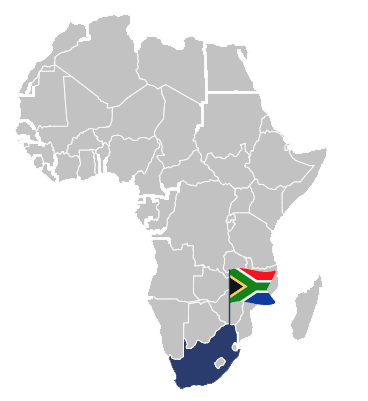About the Training
LGBTIQ Political Leadership Institute in South Africa
Training Curriculum
Cape Town – South Africa, 2019
Why Political Leadership Trainings in South Africa?
Combining theoretical and practical content, the LGBTIQ Political Leadership Learning Institute will provide LGBTIQ leaders with the necessary skills to participate in the political process and hold public office positions, so they can fight violence and inequality this population experiences from within the political system. This program is part of a larger project between Triangle Project and the LGBTQ Victory Institute, aimed towards bringing the topic of political participation for LGBTIQ people in South Africa to public political agenda.
The existence of openly LGBTIQ elected officials produces a double effect on the population: on one hand, it is an awareness tool within state institutions, enabling other public officials to actually get to know LGBTIQ people as equals; and, secondly, it provides positive role models for young LGBTIQ people. The presence of openly LGBTIQ elected officials is also key to achieving social equality, as it allows there to be a voice in the room where decisions are being made.
Although South Africa has made significant legislative advances regarding LGBTIQ (lesbian, gay, bisexual, transgender, intersex and queer) rights, South African LGBTIQ people, due to several intersecting vulnerabilities, still experience a significant amount of inequality and violence. LGBTIQ persons continue to face extreme forms of violence, which some data and anecdotal experience suggest is critically under-reported. Brought about by Apartheid and Settler Colonialism, intersecting identities such as race, class, geography, and gender also play a significant role in the lives of LGBTIQ South Africans.
In order to advance towards equality and help to reduce this violence, it is essential to strengthen the capacities of LGBTIQ leaders so that they are best prepared to engage in the democratic process and hold public office positions. This will encourage a more fluid dialogue with political institutions. Having more politically prepared LGBTIQleaders will also help to position LGBTIQ equality on the country’s political agenda and more effectively address the violence affecting this population, both from civil society and from political institutions.

Main goal
Provide the theoretical and practical content needed to strengthen the knowledge and skills of LGBTIQ leaders interested in the in becoming political candidates or in joining political parties.
Specific Objectives
- Strengthen the leadership skills required to become an openly LGBTIQ candidate or political party member and deepen the understanding of the important role of LGBTI participation in the democratic process.
- Develop a greater understanding of how to engage with the political systems and use those avenues to help society to advance towards equality.
- Develop key communication skills to build and deliver a clear and concise political message to a variety of audiences.
- Recognizing the experiences, needs, organizing and activism of lesbian, bisexual and queer women.
- Provide the tools and skills necessary to carry out a successful electoral campaign as an openly LGBTIQ candidate.
Curriculum and Methodology
The training consists of 4 modules with a duration of 2 and a half days each:
Module 1 – LGBTIQ Leaders as Change-Makers – May 10-12, 2019.
- LGBTIQ 101 – Basic concepts and inclusive language
- Understanding the needs of the LGBTIQ populations in South Africa
- LGBTIQ Political Leadership: impact and role models
Module 2 – South African Political Systems and Global Feminist LBQ Women’s* Conference – July 4-6 + 6-9, 2019
- South African Government levels and functions
- Legislative and policy process
- Building coalitions
- Conference: Recognizing the experiences, needs, organizing and activism of lesbian, bisexual and queer women* (July 6-9)
Module 3 – Messaging, Communications Skills – September 13-15, 2019
- Developing a relationship with journalists
- Creating a message
- Public Speaking Techniques
- Journalistic interview
- Social media
Module 4 – Electoral Campaign Techniques – November 1-3, 2019
- Building the campaign message
- Creating and maintaining a campaign plan
- Identify voter targets
- Voter contact techniques
- Campaign financing
- Campaign staff and volunteers
These trainings will apply classroom teaching strategies mixed with interactive modules, and subsequent monitoring and support for participants. Each session will have a central theme, with South African or Southern African consultants as trainers. In some sessions, there will be interventions by other experts who complement the expertise of the consulting team. Those attending the course will be divided into groups and will complete a number of tasks as a team.
Though the course content is unique to this Learning Institute, Victory Institute has implemented similar courses internationally in collaboration with their partner organizations in Peru, Colombia, Honduras, the Balkans, the Dominican Republic and India.